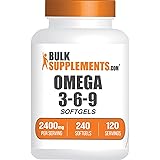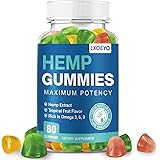Did you know that over 40% of individuals aged 65 and older experience some form of cognitive impairment? This concerning statistic underscores a universal fear: the loss of our mental faculties. As eloquently discussed in the video above, individuals like Lara Freeman and Dr. Ford Brewer are deeply invested in understanding and combating cognitive decline, driven by both personal experience and a desire to “rectangularize our lifespan”—a concept where we maintain high quality of life until its very end, rather than enduring a prolonged decline.
This discussion delves into several fascinating avenues for protecting our most vital organ, from the neuroprotective potential of CBD oil to the profound impact of specific exercise regimens on brain health. However, the path to sustained cognitive vitality is multifaceted, requiring a proactive and informed approach that integrates lifestyle, nutrition, and even advanced diagnostic tools.
Exploring CBD Oil’s Role in Brain Protection
The conversation highlights the intriguing possibility of CBD oil as a neuroprotective agent. Lara Freeman, having experienced a traumatic brain injury, shares her personal journey of exploring various holistic and scientific approaches to cognitive preservation. Her interest was significantly piqued by the National Institutes of Health (NIH) patent on cannabinoids, specifically mentioning CBD’s potential in this regard. While the exact mechanisms are still under investigation, the evidence suggests CBD’s capacity to act as a potent neurological antioxidant and its influence on neurotransmitter systems within the brain.
Crucially, CBD is noted for its ability to pass the blood-brain barrier—a highly selective semipermeable membrane that protects the brain from circulating toxins or pathogens. This unique characteristic allows CBD to exert its effects directly on brain cells and neural pathways, distinguishing it from many other compounds that cannot access the brain. Although the precise reasons for its neuroprotective efficacy remain somewhat elusive, with researchers contemplating whether it’s due to anti-inflammatory actions, neurotransmitter modulation, or a combination of factors, its impact on halting nerve damage in various forms—slow decline, traumatic injury, and inflammatory damage—is well-documented in the NIH patent research. This compelling evidence supports the ongoing exploration of CBD oil in supporting cognitive health.
Understanding and Assessing Cognitive Decline
The fear of losing one’s brain, rather than simply succumbing to physical ailments, is a prevalent concern for many health-conscious individuals. This conversation underscores the shifting paradigm in longevity—moving beyond merely extending lifespan to enhancing “healthspan,” ensuring a high quality of life throughout. The 80s are often cited as the decade when the risk for cognitive decline significantly increases, making early intervention and preventive strategies paramount.
To accurately assess cognitive function, tools like the Montreal Cognitive Assessment (MoCA) are discussed. This 30-question test is a more reliable and validated alternative to older methods like the mini-mental exam. It evaluates various cognitive domains including short-term memory, executive function, orientation, language, attention, and abstraction. While requiring a certified assessor, the MoCA provides a numerical score that can indicate mild, moderate, or severe decline, guiding individuals toward appropriate interventions. Such assessments are critical for personalizing strategies and ensuring interventions are timely and effective in the pursuit of optimal cognitive health.
The Brain-Body Connection: Exercise and Dual-Tasking
Beyond supplementation, the power of physical activity in safeguarding cognitive function is undeniable. The discussion emphasizes the “brain-body approach,” particularly advocating for dual-tasking exercises. This involves performing a motor activity concurrently with a cognitive task, significantly challenging the brain and promoting neuroplasticity. For instance, programs like “Drums Alive,” where participants drum on therapy balls while engaging in large lower body movements, combine rhythm, coordination, and physical exertion, offering a holistic cognitive workout.
Such integrated approaches go far beyond simple word searches or traditional online brain games. By forcing the brain to manage multiple streams of information and physical commands simultaneously, dual-tasking enhances executive function, attention, and processing speed—all critical components of robust cognitive health. This type of strenuous activity provides ‘eustress,’ a beneficial form of stress that stimulates growth and adaptation, contrasting with the detrimental effects of chronic distress on brain function.
Unlocking Longevity: The Science of High-Intensity Interval Training (HIIT)
When it comes to exercise, the type and intensity matter significantly for brain health and longevity. Dr. Brewer references a pivotal Mayo Clinic study that examined the impact of different exercise modalities on mitochondrial function across various age groups. Mitochondria, often dubbed the “powerhouses of the cell,” play a crucial role in energy production and are central to the aging process and cognitive vitality.
The study, involving 20-somethings, 40-50-somethings, and 70-80-somethings, compared long, slow distance (LSD) endurance training, resistance training, and High-Intensity Interval Training (HIIT). The findings were strikingly clear: HIIT emerged as the most effective method for improving mitochondrial function, followed by resistance training, with LSD ranking a distant third. This robust research, which involved analyzing muscle biopsies, provides compelling evidence that acutely taxing muscles through short bursts of intense effort, like 30-second intervals as recommended by the American College of Sports Medicine, is far more beneficial for cellular health than prolonged, moderate exercise. This challenges conventional wisdom and highlights the importance of incorporating varied, intense movements into our fitness routines for superior cognitive and physical outcomes.
Battling Vascular Inflammation and Insulin Resistance
While various factors influence cognitive health, vascular inflammation stands out as a “big, big deal” according to Dr. Brewer. Inflammation in blood vessels can lead to reduced blood flow to the brain, damaging delicate neural tissues and impairing cognitive function over time. Exercise, particularly high-intensity forms, plays a crucial role in mitigating this inflammation, acting as a powerful preventative measure against cognitive decline.
Furthermore, exercise directly addresses insulin resistance, a condition where the body’s cells don’t respond effectively to insulin, leading to elevated blood sugar levels. This is critical because high blood sugar has been linked to increased risk of cognitive impairment and neurodegenerative diseases. Continuous Glucose Monitoring (CGM) provides personalized data, illustrating how even a simple 20-minute walk after a meal can dramatically lower blood sugar levels from, for instance, 148 mg/dL to the 70s. This personalized feedback empowers individuals to “eat to the glucometer and exercise to the glucometer,” revealing unique metabolic responses to foods and activities. By understanding these individual patterns, we can make informed choices that optimize blood sugar regulation, reduce vascular inflammation, and ultimately support robust cognitive health.










